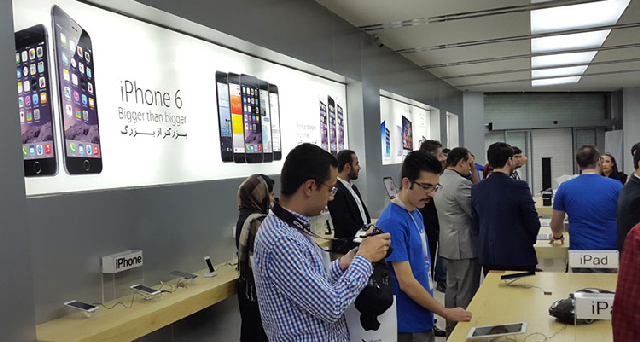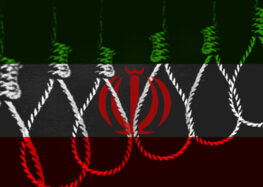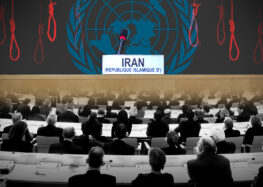Internet Freedom in Iran Will Benefit From Sanctions Relief

Increased foreign investment and access to foreign companies’ technology products in Iran now that sanctions against Tehran have been lifted will not only aid the country’s ailing economy, it will also give Internet access a vital boost.
Long hampered by government Internet restrictions and hamstrung by sanctions that limited the ability to buy censorship-bypassing software, Iranians will now be able to obtain the tools and services needed for greater Internet access.
“The removal of sanctions will be unequivocally positive for Iranian Internet users,” Collin Anderson, a researcher on Iranian Internet policy, told the International Campaign for Human Rights in Iran. “Both the human rights community and policy makers have long understood that greater access to information technology empowers the public to bypass governmental controls on expression.”
While US companies will still be restricted in their dealings with Iran due to the continuation of most American sanctions against the Islamic Republic, European companies, as well as the foreign affiliates and subsidiaries of US companies, are free to do business with Iran.
One of the immediate benefits will be Iranians’ access to secure international SSL certificates. These certificates are critical to Internet freedom; they ensure that a users’ connection to a server is encrypted and thus any content passing over that connection is undecipherable. With activists in Iran imprisoned for their online activities, security is vital.
Previously, Iranians could not purchase international SSL certificates, due to financial sanctions. As a result, they had to buy Iranian national SSL certificates, which allowed state authorities to decrypt the connection and gain access to accounts.
Iranians will also now be able to purchase web hosting services from companies based outside Iran. Without physical access to the servers, state authorities cannot gain access to user accounts, a danger Iranians faced when they could only purchase these services from domestic companies.
In addition, Iranians will now be able to purchase original copies of popular applications, ensuring that they don’t inadvertently buy fake copies of software that are designed to allow state authorities backdoor access to accounts.
There are still pitfalls. US companies were allowed to sell personal communications tools to Iran under the General D1 license issued by the US Treasury Department in 2013. However, many companies refused to sell or make their services available to Iranians, for fear of running afoul of US compliance regulations. As a result, many items that were technically permissible were still not available to Iranians.
Erich Ferrari, a legal expert who specializes in U.S. sanctions on Iran, cautions against heady expectations: “I don’t see anything in terms of the sanctions relief’s legal effect that would suggest it would have immediate and direct benefits for Iran’s telecommunication industry. Through exemptions in the embargo, OFAC’s prior statements of licensing policy, and General License D-1, there was already a lot of legal authority from the U.S. side that authorized telecommunications transactions. Also, with the exception of some authorities targeting parties engaged in human rights abuses through the use of information technology, there were no secondary sanctions or designation authorities impacting that particular sector of Iran’s economy,” he said, in remarks to the Campaign.
And Internet researcher Anderson warns, “The onus is now on the private sector to reopen their services and platforms to Iranian users.”
Nevertheless, with international banking transactions with the Islamic Republic permissible, private sector reluctance to sell to Iran will likely be reduced.
Some technology companies, such as Microsoft, have already resumed email services to Iranians. Apple, Hewlett-Packard (Suisse) Sarl, the Swiss-based subsidiary of the US-based company, and the Hong-Kong-based Lenovo Group are exploring a return to the Iranian market, as well, the Wall Street Journal reported.
The lifting of sanctions has also raised expectations for investment in transforming Iran’s communications infrastructure—a goal shared not only by activists, but also by many Iranian officials in President Rouhani’s administration who believe such an infrastructure upgrade is essential for a modern economy.
On January 21, 2016, Communications and Information Technology Minister Mahmoud Vaezi said, that Iran hoped to see increased investment geared towards increasing the country’s limited Internet bandwidth levels. This would increase Internet speeds in Iran, facilitating professional and commercial communications. It would also benefit the Iranian human rights and activist community, which has long been hampered by slow Internet speeds that impede online information sharing.
Alireza Yari, secretary of the Native Search Engine Guidance Council, said on January 22, 2016, that Iran could collaborate with Google and Yahoo. “Previously we had expressed interest in collaborating with domestic search engines in Russia, South Korea and China. But they did not show any interest because Iran’s domestic market is not attractive to them,” he added.
Legal expert Ferrari added that Iran’s access to billions of dollars of blocked assets would enable the country to import the high-tech equipment necessary to upgrade its communications infrastructure. “We may see an indirect impact on the industry—as we will with all Iranian industry—due to the availability of more foreign currency, since Iran will be reintegrated into the global economy and will no longer have its foreign reserves from oil sales tied up in restricted accounts abroad,” he noted.
“With more foreign currency available, it should allow for greater importation of goods, services, and technology that could further expand and modernize telecommunication infrastructure in Iran. Also, greater interest from foreign investors could lead to investment in the telecommunication sector, which would also further its growth,” Ferrari continued.
In recent weeks there has been a growing number of requests from Iranians on social media for major tech companies to move forward with sales to Iran, now that sanctions have been lifted. For example, Farhad Bagheri, who has been a user of the Docker software services in Iran, sent an email to the company requesting a resumption of services. Docker’s founder wrote back, “We are going to check with our legal tech whether there is any procedure we should follow. Then we will move right away to open the service.”
Internet freedom experts cautioned that the lifting of sanctions should not be seen as an opportunity to give Iranian authorities access to online spying technology.
“These openings are not opportunities for foreign companies to collaborate with the Iranian government to tighten controls and spying on the public’s communications. The US and Europe both maintain longstanding restrictions against the provision of censorship and surveillance equipment to Iran, including Executive Order 13606, TRA §703, and Council Regulation (EU) No 264/2012. These sanctions remain in place, and include extraterritorial sanctions and other punitive mechanism against companies found to have contributed to the Iranian government’s violation of human rights,” Colin Anderson told the Campaign.






